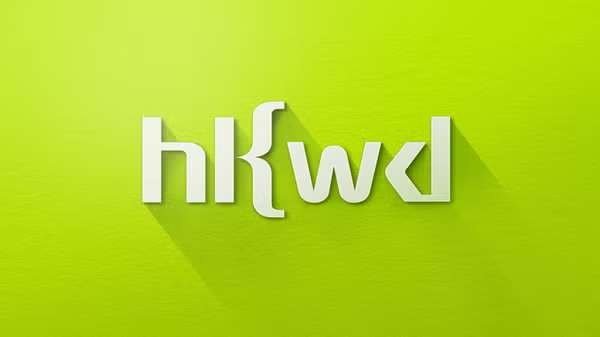
Best practices in DevOps
Best practices in DevOps
In this month‘s event we have an expert in the field of DevOps who will discuss best practices in CI/CD and Infrastructure as Code.
About the speaker
Daniel Sarosi Daniel is the CEO of Great Wall Connect and is leading the team with a vision for innovation and excellence. With 20+ years of experience working with software and cloud technologies, he is passionate about helping businesses succeed in the digital landscape.
About the organiser
Rhys Turner is a Creative Technologist and Innovation Technologist, specializing in the intersection of technology, design, and luxury experiences. With a background in emerging technologies, AI, and interactive media, he explores innovative ways to enhance digital storytelling and customer engagement. His work focuses on blending creativity with technical innovation, pushing the boundaries of digital craftsmanship in the fashion and beauty industries.
AI Notes - Meeting summary
Quick recap
The meeting began with discussions about business structures and contracts, followed by conversations about DevOps and infrastructure as code between Rhys and Sumit. Rhys hosted a meeting to discuss the expansion of their web and IoT-focused event series, announcing the formation of a new electronics and hardware group and introducing Daniel who presented on infrastructure as code and Terraform. The main technical discussion centered on immutable infrastructure, CI/CD pipelines, and the evolution of DevOps, with participants exploring various cloud providers and infrastructure management approaches.
Summary
Sole Proprietorship Legal and Operational Tips Rhys discussed the different types of business structures and emphasized the importance of charging by the hour and ensuring clear contracts when operating as a sole proprietorship to protect oneself from potential lawsuits. He advised delivering work to 100% satisfaction and suggested keeping detailed records for years.
DevOps Meeting Time Coordination
Rhys and Sumit discussed the upcoming meeting and confirmed it would start at 7:30 HKT. Sumit expressed his interest in DevOps and mentioned he had joined the meeting due to Rhys’s involvement. They briefly touched on the topic of time zone differences and calendar management, with Sumit noting that he had added the meeting to his calendar to avoid missing it in the future.
DevOps and Infrastructure Planning Discussion
Sumit and Rhys discussed their work in DevOps and infrastructure as code, with Sumit mentioning their upcoming work on MCP in October. They briefly talked about Rhys’s app, which Sumit saw had increased downloads. Rhys invited Sumit to visit Sydney and suggested meeting in India instead. They also discussed the casual venue where their meeting was taking place.
Tech Event Series Expansion Plans
Rhys hosted a meeting to discuss the expansion of their web and IoT-focused event series, seeking new venues and speakers. He announced the formation of a new electronics and hardware group called H-Tribe HK and mentioned an upcoming workshop on migrating from Windows 10 to Linux organized by Milan. Rhys also introduced Daniel, who will be presenting on DevOps and Terraform, and encouraged attendees to share information about other relevant events.
Terraform and Infrastructure as Code
Daniel Sorosi, a seasoned web developer and cloud expert with 15 years of experience, delivered a comprehensive talk on infrastructure as code, focusing on Terraform and AWS. He emphasized the importance of infrastructure as code for building production systems, highlighting its benefits such as versioning, auditing, fine-tuning permissions, tagging capabilities, and cost management. Daniel explained how Terraform enables these features through state files, Git integration, and automated processes, contrasting it with the limitations of using cloud consoles. He also discussed the role of auditing in DevOps, the significance of immutable infrastructure, and the use of tagging for resource management and compliance.
Immutable Infrastructure and Tenancy Overview
Rhys explained the concept of immutable infrastructure, emphasizing its benefits of starting with new instances for deployments and avoiding risky changes to existing production systems. He highlighted that immutable infrastructure enables testing before deployment and can lead to zero downtime, though achieving zero downtime requires significant effort and initial setup. Rhys also touched on the topic of tenancy, explaining how automation and immutable infrastructure can facilitate managing multiple accounts or customers, and asked if anyone in the audience was practicing multi-tenancy, but no one responded.
DevOps, AI, and Infrastructure Evolution
Rhys discussed infrastructure as code, CI/CD pipelines, and the evolution of DevOps. He explained the benefits and challenges of using AI in infrastructure management, noting that while it could potentially streamline processes, it might also introduce new risks. Rhys emphasized the importance of automation in CI/CD pipelines and advised against deploying on Fridays unless automation is in place. He also touched on the emergence of platform engineering as a response to the increasing complexity of cloud-native infrastructure. Rhys concluded by highlighting the need for specialized expertise in enterprise network infrastructure and security.
Infrastructure as Code and Cloud Providers
The meeting focused on infrastructure as code and cloud providers. Rhys discussed the applicability of CODA’s infrastructure to new cloud providers like Hetzner, noting that Terraform availability would determine the approach. The group explored methods for applying infrastructure changes, with Rhys sharing his team’s experience of manual application due to challenges with automated pipelines. They also touched on the potential for using similar tools for app development, though Rhys noted limited options compared to infrastructure management.